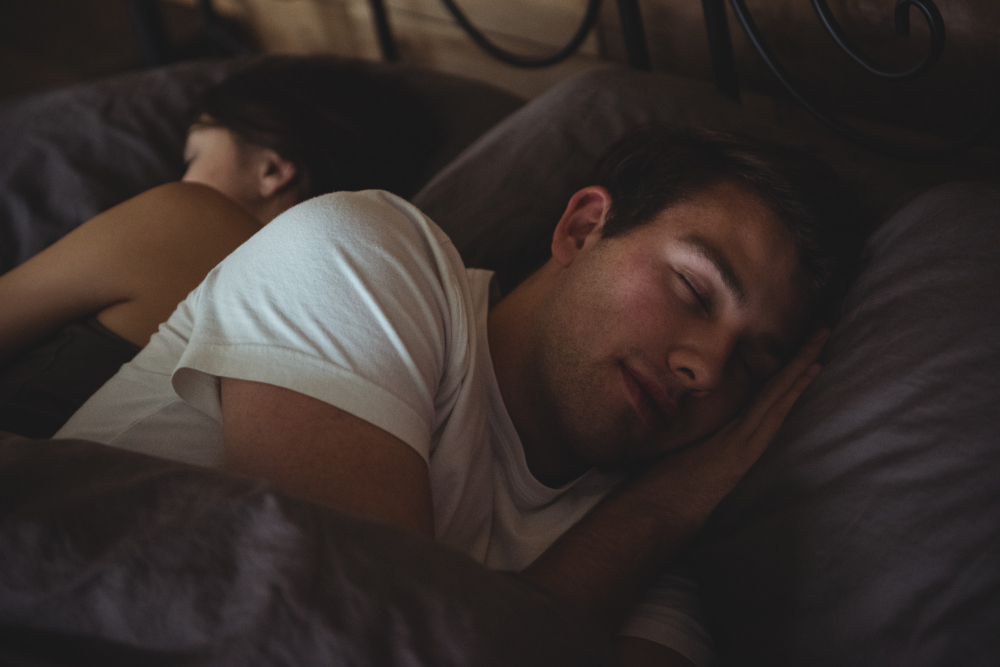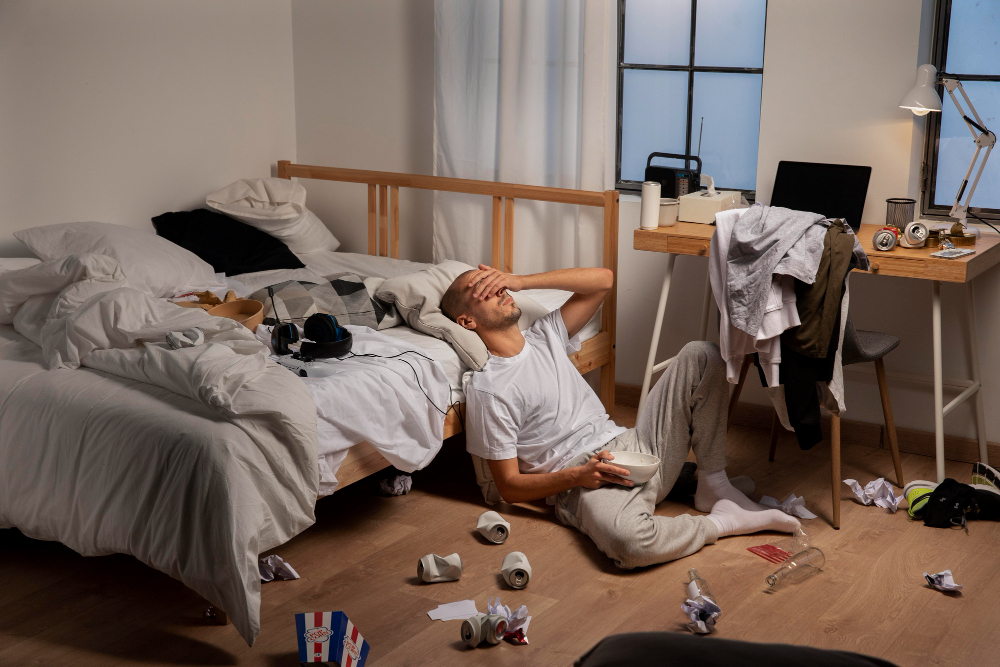It’s 2 a.m. You know you should be asleep, but your brain is on overdrive. The glow of your phone screen is the only light in the room. Work deadlines, tomorrow’s bills and the unread messages you don’t have the energy to answer, all play in loops that won’t quiet down. You scroll, you toss, you try to count breaths, but sleep stays just out of reach.
Well, millions of young adults around the world are living in this exact moment tonight. Stress and sleeplessness are actually intertwined forces shaping an entire generation’s health. And the most alarming part? They’re quietly shaving years off our lives.
A Culture of Constant Pressure
We live in what some psychologists call the “always-on era.” For people in their 20s to 40s, the concept of switching off feels almost alien. Unlike our parents’ generation, where evenings might have meant community dinners or a few hours of television before bed, our world is 24/7.
- Phones buzz constantly. Slack notifications arrive late into the night.
- The hustle mentality is glorified. Rest is seen as laziness, sleep as wasted productivity.
- Economic pressure looms. Young professionals juggle student debt, rising rents, and uncertain job markets.
Historically, sleep was abundant. Anthropological studies show that pre-industrial societies averaged nearly 9–10 hours of rest a night. Today, the average hovers around 6.8 hours, with some groups dipping much lower.
Stress has become so normalized that feeling “busy and tired” is almost a badge of
honor. But the truth is, this relentless pace is breaking us down from the inside out.
What Stress Really Does to the Body
We throw around the word “stress” casually, like traffic stress, exam stress, relationship stress. But biologically, stress is no small thing. It is a full-body alarm system triggered by cortisol, the hormone that surges when your brain perceives a threat.
In short bursts, stress can save your life. It sharpens focus, increases blood flow, and primes your muscles to react. But when that system is never turned off, when bills, deadlines, and worry live rent-free in your brain 24 hours a day, the results are devastating.Think of it like keeping your phone on full brightness with multiple apps running all day, the battery drains quickly and overheats. Our bodies are no different.
Chronic stress contributes to:
- Weakened immunity: You catch colds more often and recover more slowly.
- Digestive issues: From indigestion to irritable bowel flare ups.
- Cardiovascular strain: High blood pressure and heart disease risks climb.
- Hormonal imbalance: For women, irregular cycles or fertility challenges; for men, lower testosterone and energy.
- Mental health impacts: Anxiety, depression, brain fog.
Sleep is The Missing Lifeline
If stress is the gasoline fueling the fire, lack of sleep is the oxygen that keeps it burning.
Sleep is not simply “rest.” It’s an active biological process where the brain detoxifies, memories consolidate and the immune system repairs. When you skip sleep:
- Your reaction time slows as if you were legally drunk.
- Blood sugar control falters, increasing diabetes risk.
- Inflammation spikes, making you more vulnerable to illness.
- Emotional regulation collapses, even small frustrations feel overwhelming.
Studies show that even one week of reduced sleep (six hours a night instead of eight) can alter the expression of hundreds of genes related to immunity, stress response, and metabolism.
For many in their 20s and 30s, sacrificing sleep feels like a necessary trade-off to “get things done.” But the debt is cumulative. A sleepless decade in your 20s can manifest as heart disease in your 40s.

The Vicious Cycle of Stress and Sleeplessness
Here’s the cruel irony: stress keeps you awake, and being awake makes you more stressed.
- You lie in bed with a racing mind, unable to switch off.
- You wake groggy, already behind, fueling caffeine dependence.
- The caffeine keeps your nervous system wired, preventing deep sleep.
- Round and round the cycle goes.
Real people live this cycle daily:
- Maria, 28, a graphic designer, says her “brain won’t stop replaying work conversations” at night.
- Dev, 33, a father of two, relies on three strong coffees by noon to stay functional, yet still feels exhausted.
- Anika, 24, a student, sleeps only four hours before exams, then crashes for 12 — her body constantly confused.
Left unchecked, this loop is one of the biggest drivers of burnout in modern society.
Natural Approaches to Breaking Free
Here are evidence-based ways people are reclaiming balance:
1. Digital Hygiene
- No screens an hour before bed.
- Use night mode or blue light glasses if evening work is unavoidable.
2. Body Movement
- Regular exercise lowers cortisol and increases sleep-promoting hormones.
- Even 20 minutes of walking reduces stress perception.
3. Breath and Mindfulness
- Slow breathing exercises lower heart rate and signal safety to the nervous system.
- Practices like yoga and meditation activate the parasympathetic “rest and digest” system.
4. Nutrition and Calming Compounds
- Limiting caffeine and alcohol stabilizes sleep cycles.
- Magnesium-rich foods (like leafy greens) calm the nervous system.
- Herbal supports — such as chamomile or valerian root — have been used for centuries.
Green tea naturally contains an amino acid called L-Theanine, which has been studied for its calming properties. Unlike sedatives, it doesn’t knock you out; instead, it promotes a gentle state of relaxation by influencing brain waves. Some people find it helpful for winding down before bed or easing daytime anxiety without feeling drowsy.
Today, L-Theanine is available in supplement form for those who may not drink enough tea to benefit consistently.
For those curious about consistent supplementation, you can learn more about L-Theanine here
Another natural compound that has been studied for its connection to mood and sleep regulation is 5-HTP, a building block of serotonin. While it’s not a quick fix, some people find that adding it to their routine helps balance mood and ease into deeper rest. . You can read more about 5-HTP here.
Why This Matters Socially
It is tempting to think stress and sleep are private struggles. But when entire populations suffer, the ripple effects are immense.
- Workplaces suffer: Burnout leads to absenteeism, lower creativity, and high turnover.
- Families fracture: Exhausted parents have less patience, children absorb stress atmospheres.
- Communities weaken: Poor health drives up healthcare costs and reduces collective vitality.
And in underserved communities, the impact is magnified. Limited access to healthcare, nutritious food and safe housing compounds stress. For families already living paycheck to paycheck, poor sleep is not just about restlessness — it can mean the difference between keeping a job or losing it.
This is where organizations like The Health Vitality Foundation step in: by making nutritional education and wellness resources accessible, they help break cycles of stress-related illness at a community level.
Stories of Hope and Healing
- Khalid, 35, grew up believing “rest was weakness.” After suffering chest pains, he began learning about stress management. He credits community workshops for teaching him mindfulness and nutrition basics.
- Sofia, 26, a university student who couldn’t sleep before exams, learned how caffeine, late-night screens, and skipped meals fueled her insomnia. With gentle adjustments, she now sleeps six to seven hours consistently.
- Raquel, 42, battled years of stress-related digestive issues. Incorporating herbal teas, gentle yoga, and community support changed not just her health but her sense of control.
The common thread? None of them “cured” stress. But they built new relationships with it. They found tools, both lifestyle habits and natural supports, that allowed them to reclaim a sense of agency.
A Wake-Up Call Worth Answering
Stress and sleeplessness are not character flaws. They are the predictable outcomes of living in a society that glorifies busyness and undervalues rest. But while the problem is widespread, the solutions are within reach.
Digital boundaries, breathing exercises, calming teas or broader community efforts supported by NGOs, we have the power to change the story.
The most radical act our generation can take may be the simplest: to reclaim rest, to honor our bodies, and to remember that vitality is not just the absence of illness but the presence of balance


